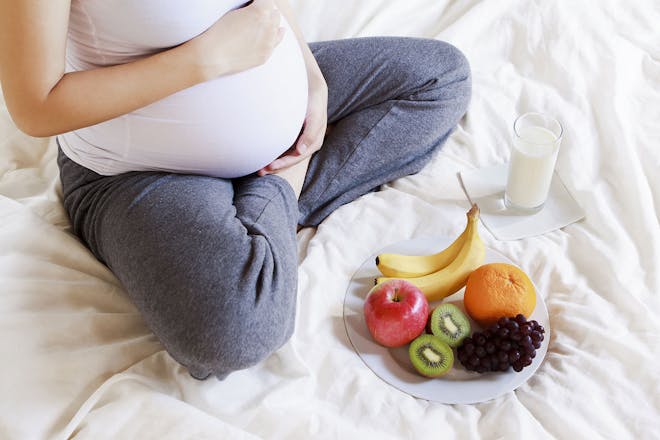Third pregnancy: your baby’s movements

Are you onto your third pregnancy and wondering when you'll be able to feel those special flutters and kicks? Find out whether things will feel different this time around, and how early you'll be able to feel your baby move in your third pregnancy.
This page contains affiliate links, which means we may earn a small amount of money if a reader clicks through and makes a purchase. All our articles and reviews are written independently by the Netmums editorial team.
Feeling your baby move for the first time can be an exciting and special moment for any expectant mum – even if this isn't your first (or second) baby.
In fact, if you're onto your third pregnancy, you might be wondering if things will feel different this time around: when will you feel your baby move in your third pregnancy, and will it feel any different?
Of course, every mum has a different experience, but read on to find out what you can expect for your baby's movements in your third pregnancy.
FREE NEWBORN NAPPIES
What’s the earliest I can feel my baby move in my third pregnancy?
The earliest you're likely to feel your baby move in your third pregnancy is at about 16 weeks.
However, that's the earliest, and it could well be later – up to eight weeks later, to be exact. According to the NHS, you should start to feel your baby move between around 16 weeks and 24 weeks, so it might be that you feel your baby move later than other mums.
Still, in your third pregnancy you may feel your baby move earlier than you did in your first. The NHS says that during your first pregnancy you might not feel movements until after 20 weeks – so, if that was the case for you first time around, you might be able to feel some movement earlier in your third pregnancy.
Everyone will have a different experience, so try not to compare yourself to other mums who've felt their babies move earlier or later.

Between 16 and 24 weeks is normal. If you haven't felt your baby move by 24 weeks, then you should tell your midwife who will be able to check your baby's heartbeat and movements.
When can other people feel my baby's movements?
While you should be able to feel your baby's movements between 16 and 24 weeks in your third pregnancy, unfortunately other people won't be able to feel them quite as early as you.
Having someone feel your baby moving by touching your bump is a special moment, but the point when other people will be able to feel your baby's movements will be different for everyone – so you may have to wait for a little while longer!
What else can I expect from my baby's movements?
By your third pregnancy, you'll probably know the score when it comes to your baby's movements. Still, each pregnancy can be different, so here's a reminder...
At first, your baby's movements might feel like a gentle fluttering or swirling feeling. As you move further through your pregnancy, you may be able to feel kicks and jerky movements as your baby grows and starts to move around more – and you'll feel your baby move right up until you give birth.
The important thing with your baby's movements is to get used to their normal day-to-day movements, so you can spot if anything changes.
Every baby is different, so for this reason the NHS doesn't advise counting your baby's kicks, as there isn't a set number of kicks you should feel each day.
Instead, get to know your baby's usual pattern of movements – and get any changes to their movements checked by a midwife or a doctor, as this might be a sign that something could be wrong.
When to get medical help
The NHS advises that you call your midwife or maternity unit straight away if you notice any of the following:
- your baby moving less than usual
- you cannot feel your baby moving anymore
- there is a change to your baby's usual pattern of movements
The NHS says to call straight away if you notice any of the above, rather than waiting – even if it's at night.
The midwife or doctor will be able to check your baby's movements and heartbeat, and they'll be able to spot if something is wrong.
Your baby being less active than usual could mean they aren't well and it could be a sign of an infection or another problem, according to the NHS.
So, the sooner you get things checked out, the better – and it could save your baby's life, so it's something that is important to take seriously.
Looking for more information on what to expect during pregnancy? Read our articles below or share advice with others in the forum.


